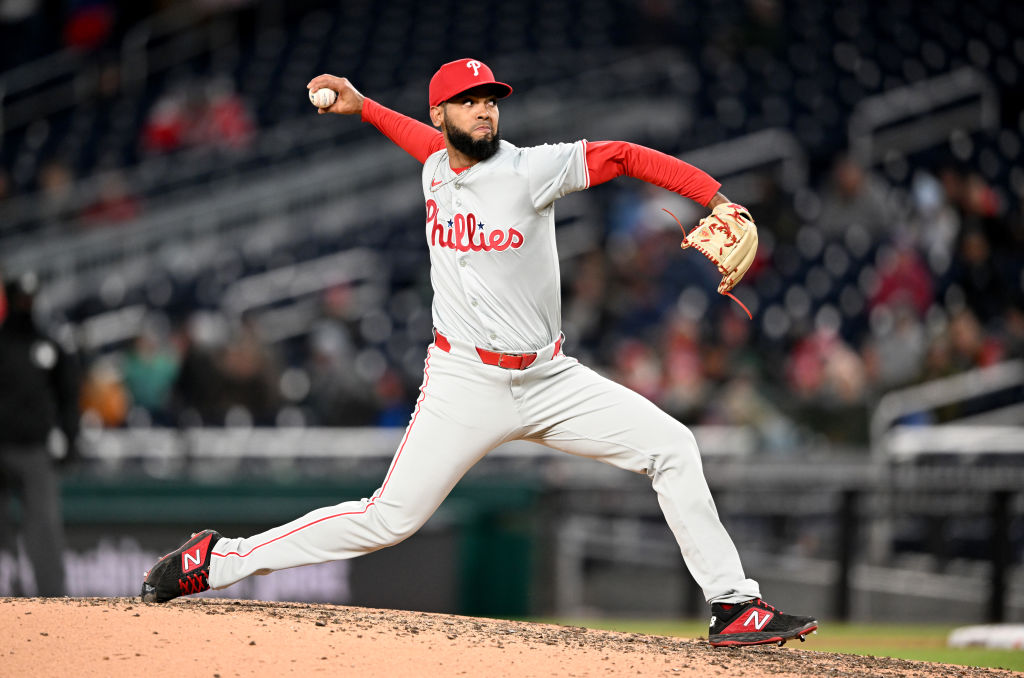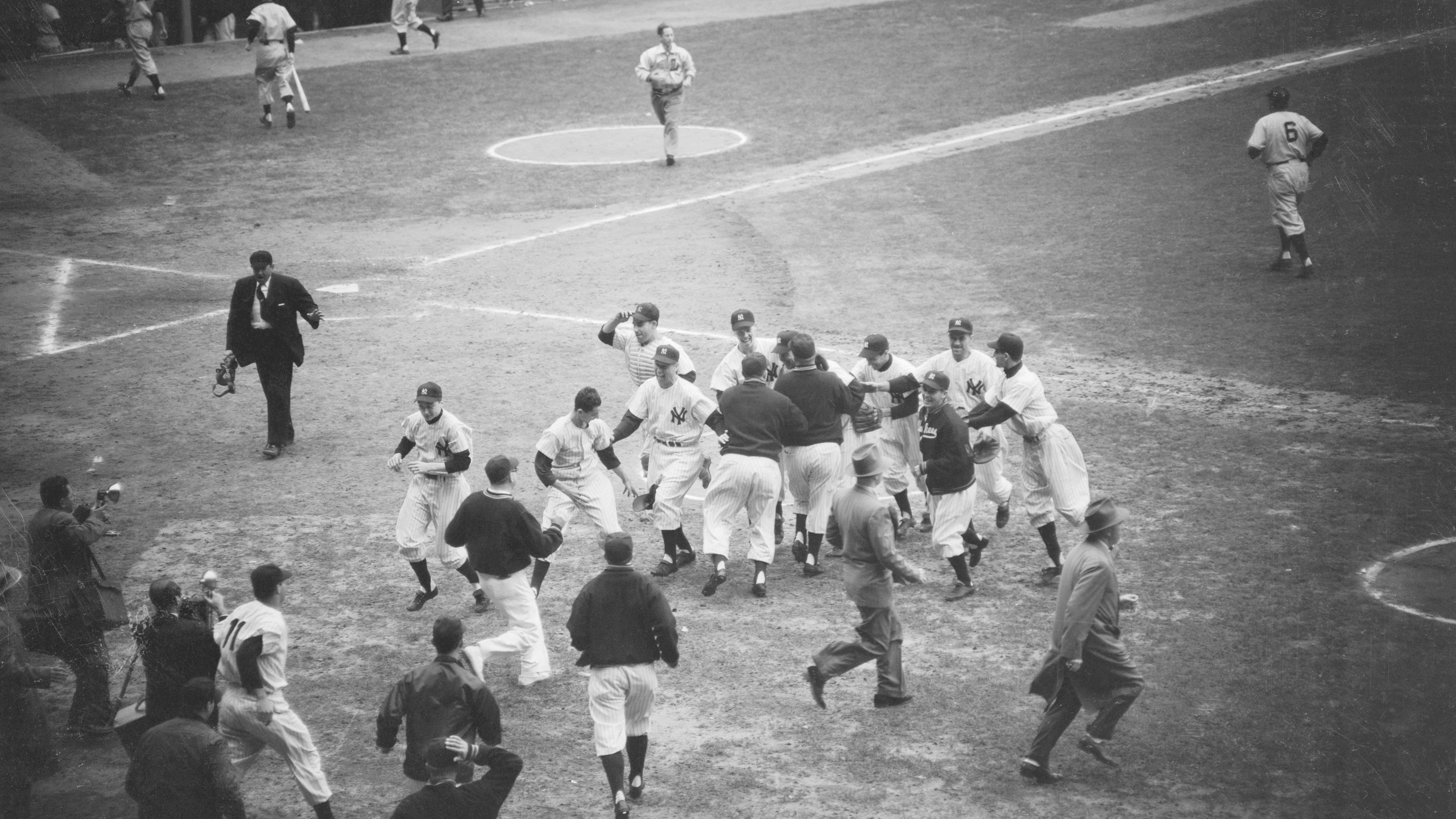
Spring training is so close you can almost smell the freshly mowed grass at Bright House Field. As the days count down to Clearwater, we take a daily look at something related to the Phillies. Some days, it will be newsy, some days it will be lighter in nature, some days it will be a thought or quick opinionanything to get us in the mood for a little warmth, a little sunshine and those three sweet words: pitchers and catchers.
Ed Wade was the Phillies general manager from 1998 to 2005. After a four-year stint as GM of the Houston Astros, he is back with the Phillies as a front-office consultant. He stopped by the Hot Stove set for an interview on Tuesday night. Heres some of the Q & A.
Can you believe the transformation that the Phillies have experienced?
Yes. I knew that it was getting closer and closer to happening and the moves that Pat Gillick was able to make really got the club to where it needed to be to have that parade down Broad Street in 2008 that everyone had longed for for a very, very long time.
Theres no question that the fans were so anxious to have that happen that they would embrace that club forever.
What was your emotion seeing the Phils win the World Series?
Obviously, I wanted to be here. There was no question about that. Id devoted 16 years of my life to trying to get us to the finish line. We just didnt get there quickly enough. But I was very happy for the people in the organization. The fans, obviously, deserved a chance to experience what they experienced. We can talk a lot about who is the GM, but there were a lot of people with a hand in putting that team together. I was really happy for those people.
MLB
What did you see in Charlie Manuel that moved you to hire him?
We had Charlie upstairs as a scout and adviser for an entire season, so I got to know him not only as a baseball man but as a person. Larry Bowa was the right guy for the job when we hired him as manager. When it became necessary to make a change, a lot was made of what direction do you go from a personality standpoint. When I selected Charlie as manager it was not a popular decision here in town because people had other favorites, whether they were media favorites or fan favorites, and the perception of Charlie was a lot different than it is today. But I think when you reach down and get to know the person and what hes about, and how that person might fit into the overall structure of what youre trying to accomplish, then I think youre doing your job appropriately, and I think thats what we did. I knew not hiring Jim Leyland was not going to be popular. I knew walking past some of the other candidates was going to be unpopular and hiring Charlie was going to be unpopular. It wasnt going to be universally saluted. But at the end of the day, you want to run that parade down Broad Street, and who was the guy that got them down Broad Street and kept them close to getting there numerous times? It has been Charlie.
How important was the signing of Jim Thome before the 2003 season?
This is a Phillies town. Its been a Phillies town forever. But I think the things that put the organization back on the radar screen for a lot of people were 1: The building of Citizens Bank Park, 2: The hiring of Larry Bowa as manager; and 3: Jim Thome coming to town.
What Jim represented was an obvious indication on the part of Phillies ownership that what weve told you all along was true: That once we get to a point where our revenues will support it, were going to spend money on player payroll, and we went out got one of the most expensive, most popular and best players on the market at that time in Jim Thome. From the time he came in with the union welcoming him to town, the love affair started and now youll get a continuation of it in the coming season.
When Thome was playing first base for the Phillies, Ryan Howard was rising in the minors. How close did you come to trading Ryan?
We had some inquiries about Ryan. In all candor, we actually initiated a couple of conversations that never got anywhere, which was a little bit surprising. I dont think we ever came close to doing it. We clearly recognized that Ryan had the potential to be an outstanding player. Did we know he was going to be an MVP and do the things hes done? No. Nobody could really have predicted that he was going to become that type of a player because, remember, at the time when Thome was here, there were still some things that Ryan had to work on in his game. Defensively, he had work to do. There was talk about a hole inside that he had to cover up. To Ryans credit he worked diligently to take care of both of those things and become the player that he has become.
Over the course of my eight years as general manager, there were opportunities to trade a lot of good players for good players in return. There was one deal that probably would have been very, very popular for a very short period of time. I had a conversation with Billy Beane of the Oakland As regarding Barry Zito, and if we had acquired Barry Zito at that time at the top of his game it would have been a very popular move. The cost of doing business was Chase Utley, Ryan Madson and Michael Bourn. We said no and the rest is history. The types of decisions we were making at that time, whether it was considering trading Ryan Howard, or keeping that core nucleus of guys, was that there had to be a point where everything fell into place. Fortunately for the ballclub, it fell into place in 2008. Unfortunately for me, it fell into place a couple of years after I left.
While you were in Houston, you were criticized in some circles for your frequent trades with the Phillies. What is your perspective on that?
First of all, I did get fired by the Phillies, so theres really no reason for me to want to do any favors for the Phillies at that particular time. Secondly, every decision we made in Houston was designed to try to help the Houston Astros. Third, I made trades, I believe, with 16 different teams the four years I was in Houston, so it wasnt just a Philadelphia-Houston connection that was taking place.
The reality is that the deals we made, because of the financial ramifications regarding Lance Berkmans contract, Roy Oswalts contract, Hunter Pences contract -- there were limitations on what we could and couldnt do. At the end of the day, we felt that the deals we made with the Phillies were good fits for a club trying to build for the future.
Michael Bourn came over and won two Gold Gloves and went to the All-Star game. A lot of people in Houston believe Jonathan Villar will be the Astros starting shortstop next year. In the Pence dealJonathan Singleton and Domingo Santana are both middle-of-the-order bats as far as we were concerned, and Jarred Cosart was a top-of-the-rotation starter or closer.
People can say these deals were made for this reason or that reason. From a Houston perspective they were made because we had to move payroll and we wanted to build for the future. We were trying to get a young core nucleus put together that hopefully for Houston will move in a similar direction as the Phillies moved five or six years ago.
What are your impressions of the 2012 Phillies and the National League?
I think Philadelphia should be the team to beat not only in the division but in the league. Theres no walking past the quality of this starting rotation and the fact that guys whove been here for a while still have a lot left in the tank.
Its a real solid ballclub in a very solid division. The Marlins certainly are a better club than they have been for a long time. The Nationals continue to build through Scott Boras clientele toward being a very solid club.
Theres a lot of good clubs in the National League. But theres no reason for people to walk past a team that set a franchise record for wins last year and not believe they have every chance to be there at the finish.
E-mail Jim Salisbury at jsalisbury@comcastsportsnet.com


